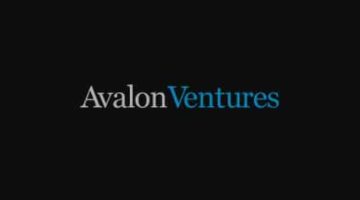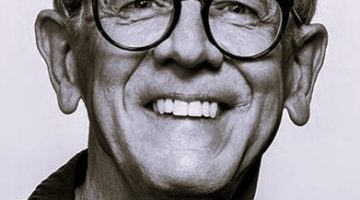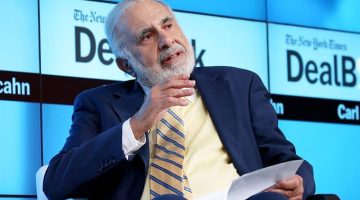Brazil
Read about the economic history of Brazil
and discover the massive investment potential it has and is developing.
Economic History in Brief
Officially known as the Federative Republic of Brazil, Brazil stretches across 8.5 million square kilometres, making it the largest country in both South and Latin America. It is also the fifth-largest country by area, the sixth most populated country in the world, the world’s eighth largest economy and the largest economy in Latin America. After pegging its currency, the ‘real’, to the US dollar in 1994, Brazil was negatively affected by a series of destructive financial events including the East Asian financial crisis and the Russian default.
The Central Bank of Brazil underwent a currency crisis and changed its monetary policy to a managed float system. In 2002 the International Monetary Fund gave Brazil a record sum rescue package of over US$30 billion. Brazil paid the loan back a year before it was due in 2005. Although there was a general decrease in investment by companies from the United States between 2009 and 2011, some companies simply ignored the economic downturn and trends and kept their investments in Brazil. General investment once again increased from 2012 leading to Brazil becoming one of the most favourable countries for American businesses to invest in.
Investment Opportunities
Brazil is active in several industries including mining, agriculture, services and manufacturing and has been expanding its presence in the global commodities markets. Brazil is one of the major exporting countries in the world with major exports including electrical goods, coffee, orange juice, soya beans, corned beef, aircraft, footwear, textile items, iron and steel. It has been the world’s largest coffee producer for the past 150 years and it has the fourth biggest car market in the world. According to data from the International Monetary Fund (IMF), Brazil’s GDP per capita was US$15,919 in 2017. The country’s substantial labour force consists of more than 107 million people and it is known as one of the four emerging economies around the world. In recent years Brazil’s military industry has started becoming an area of investment focus. It is expected that billions will be spent on refitting the Armed Forces making investments in the manufacturing of submarines, helicopters, tanks and cargo planes potentially lucrative.
Companies Investing in Brazil
Several countries around the globe are making significant investments in Brazil in a variety of sectors.
South Korean STIC Investments acquired a substantial stake in Selecta, a Brazilian soya bean company owned by Corpesca, a Chilean fishing company. Japanese companies heavily invested in Brazil include Kirin, Toyota and Honda. Kirin is a Japanese beer making company that expanded to Brazil by opening a brewery and starting nationwide distribution to grocery stores, bars and general stores all over Brazil. The entire South American operation of Honda is headquartered in Brazil giving the car manufacturer a significant presence in the country. Besides manufacturing cars, motorcycles and parts, Honda is also doing research into power generation in Brazil through one of its subsidiaries. Brazil has seen three Toyota factories open since the company opened its doors in 1958. Corolla, Hilux and Etios are manufactured there and Brazil is one of the company’s prime markets.
American retail giant Walmart has had a firmly established presence in Brazil since 1995. Walmart also owns several other brands in Brazil including BIG, Magazine, Hiper Bompreço, Mercadorama, Maxxi, TodoDia, Walmart Posto, Supermercado Todo Dia and Nacional. Over 558 Walmart retail outlets in Brazil provide employment for more than 70,000 people. Although Petrobras is the best-known company in the Brazilian oil industry, Exxon Mobil is the longest operating oil and gas company in the country. The American company has not only been successfully doing business in the country for over 100 years, it also heavily invests in the Brazilian community in a variety of programs aimed at low-income students. Yet another American company with a strong presence in Brazil is Chevron which has been active in the country since 1915 as Texaco. Chevron operates several drilling facilities in Brazil and its holdings also include a lubricants factory and a fuel additives plant. Chevron in Brazil is known as Chevron Brasil Upstream Frade Ltda. and Chevron Brasil Lubrificantes Ltda.
Investors with Interests in Brazil
Despite the massive economic recession and one of the most tumultuous political periods in the country’s history, foreign direct investment (FDI) continues to sustain Brazil. Since 2011 Canada has invested in industries like defence and security, automobile, agriculture, IT and communication services, oil and gas and aerospace. At least 70 South Korean companies have opened their doors in Brazil with a special focus on railway and road construction, digital cities and agriculture. The Netherlands makes several substantial investments in Brazil in sectors including technological manufacturing of new ships and platforms and oil and gas. Major Norwegian investments are made in mining, banking, oil and gas, naval, sailing, biofuel and fertilisers.
Undeterred by the economic recession in 2013, Israeli property executive and CEO of Gazit Globe, Mia Stark, bought significant stakes in a range of prime properties in Brazil. Properties include a historic mall in downtown Sao Paolo called Light, and an upmarket shopping centre in the classy district of Morumbi. Star and Gazit Globe invested over US$635 million between 2013 and 2017. It is resilient long-term foreign investors like this that are sustaining Brazil through the most challenging economic times.
Conclusion
Although corruption costs Brazil around US$40 billion a year and nearly 70% of the country’s companies identify it as a major constraint in successfully entering the international market, Brazil continues to enjoy a growing and diversified economy. The type of investments Brazil has started being able to market to foreigners has increased exponentially over the past 10 years with massive growth in the export industry and a flourishing agricultural industry to build upon. Foreign investors have started considering Brazil as an investment haven. According to David Beker, an economist with the Bank of America Merrill Lynch, Brazil has been receiving a lot of FDI over an extended period in comparison to other countries. Brazil has proven to be a highly resilient economic force and is expected to grow from strength to strength in the coming years.





















